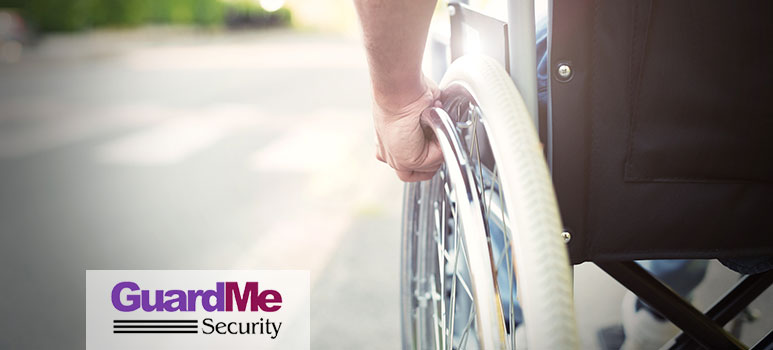Home Automation Supports Disabled Veterans

Disabled veterans have given so much and giving up freedom in their own home should not be one of them. Thanks to the many home automation options available today, our heroes can have the control and support they need to feel home again.
What is Home Automation?
Home automation is a network of connected systems utilizing a control platform that provides access and control from anywhere to automate many household activities. While home automation certainly provides convenience, for a person with disabilities and injuries it can be transformative.
Home Automation Empowerment
There are a wide range of injuries veterans can and have endured such as hearing or vision loss, mobility and dexterity decreasing injuries to their limbs, and emotional injury due to combat, among many others. With injury, our abilities can change the way we need to approach life and approach how we accomplish tasks. Until recently however, our home environment could not adapt to changing needs and abilities without serious, and seriously expensive changes. Now, home automation technologies help overcome many of those challenges.
Here are some examples of how smart home technologies is helping disabled veterans overcome challenges, make life simpler, and empower them to adapt with strength and dignity.
Mobility Challenges- Issues that limit mobility can make life exponentially more difficult. Tasks that were once routine can take longer, be tougher, or become impossible. Home automation can solve many of those challenges by scheduling tasks or making elements of their home-life such as turning off and on appliances, entertainment, lighting, or heating and cooling responsive to voice commands.
Dexterity Challenges- Manipulating small switches can present a big problem when physical dexterity decreases. Home automation technologies allows individuals to by-pass unnecessarily difficult and time consuming issues by providing an easy to access and manipulate platform on phones and other mobile devices from which to access and operate tasks such as locking doors, turning on security, or seeing who is at the door remotely.
Additional Emotional Support- Knowing you are not alone can be a huge comfort for all of us. It can help to know someone can check in to ensure our safety and get help if we are unable. If a person so chooses, they can allow friends or family access to security footage so they can check in even if they can’t be there at that time.
GuardMe Security would like to humbly thank all who have served. Your service and sacrifice is what makes this country great. If you’d like more information about how home automation can support strong, independent lives for disabled veterans, give us a call today.
- Who’s on the Front Porch When You’re Not There? - April 30, 2020
- When Summer Starts Early, Home Security Can Help - April 30, 2020
- Home Security in a Time of Social Distancing - April 13, 2020
